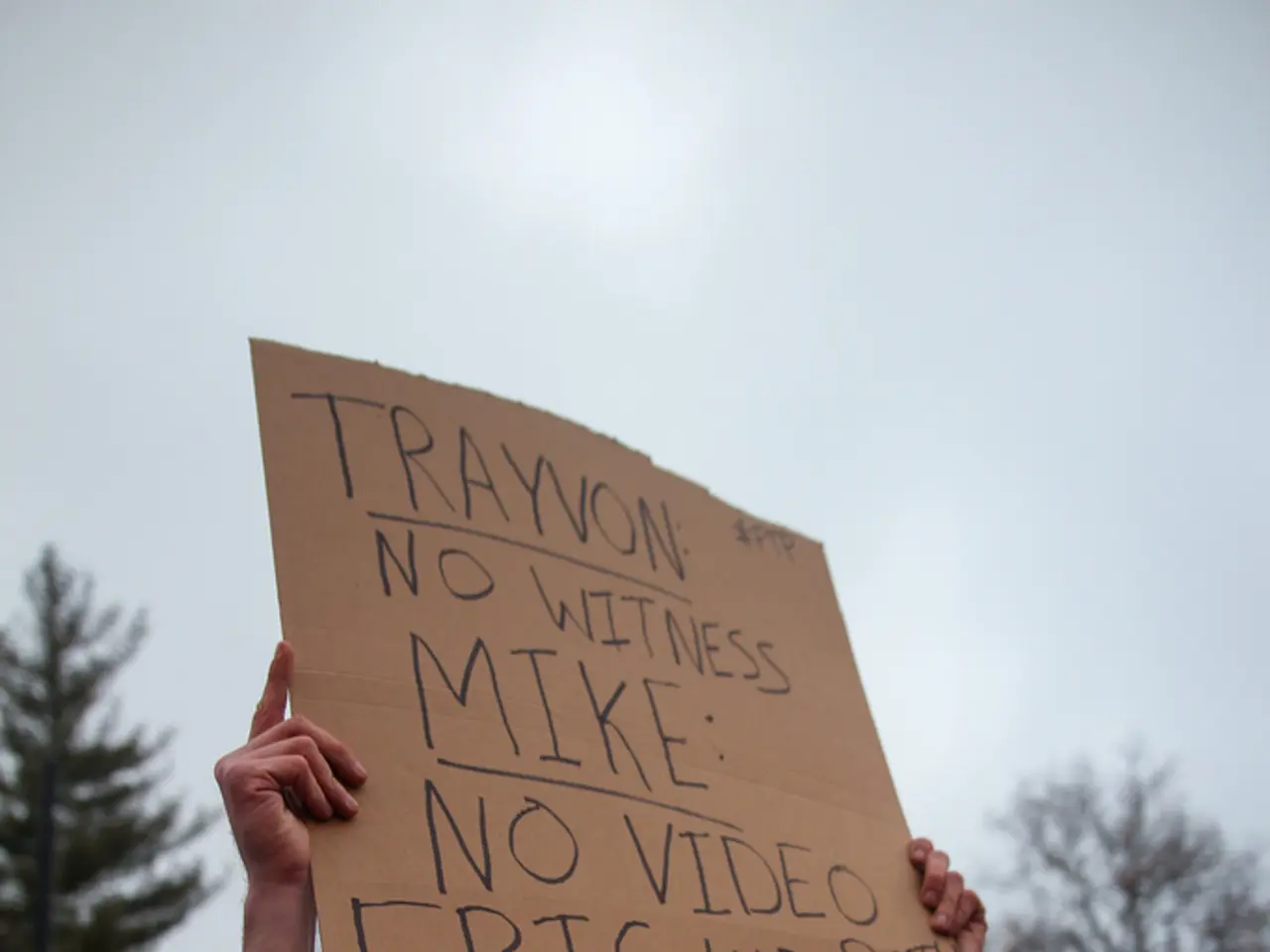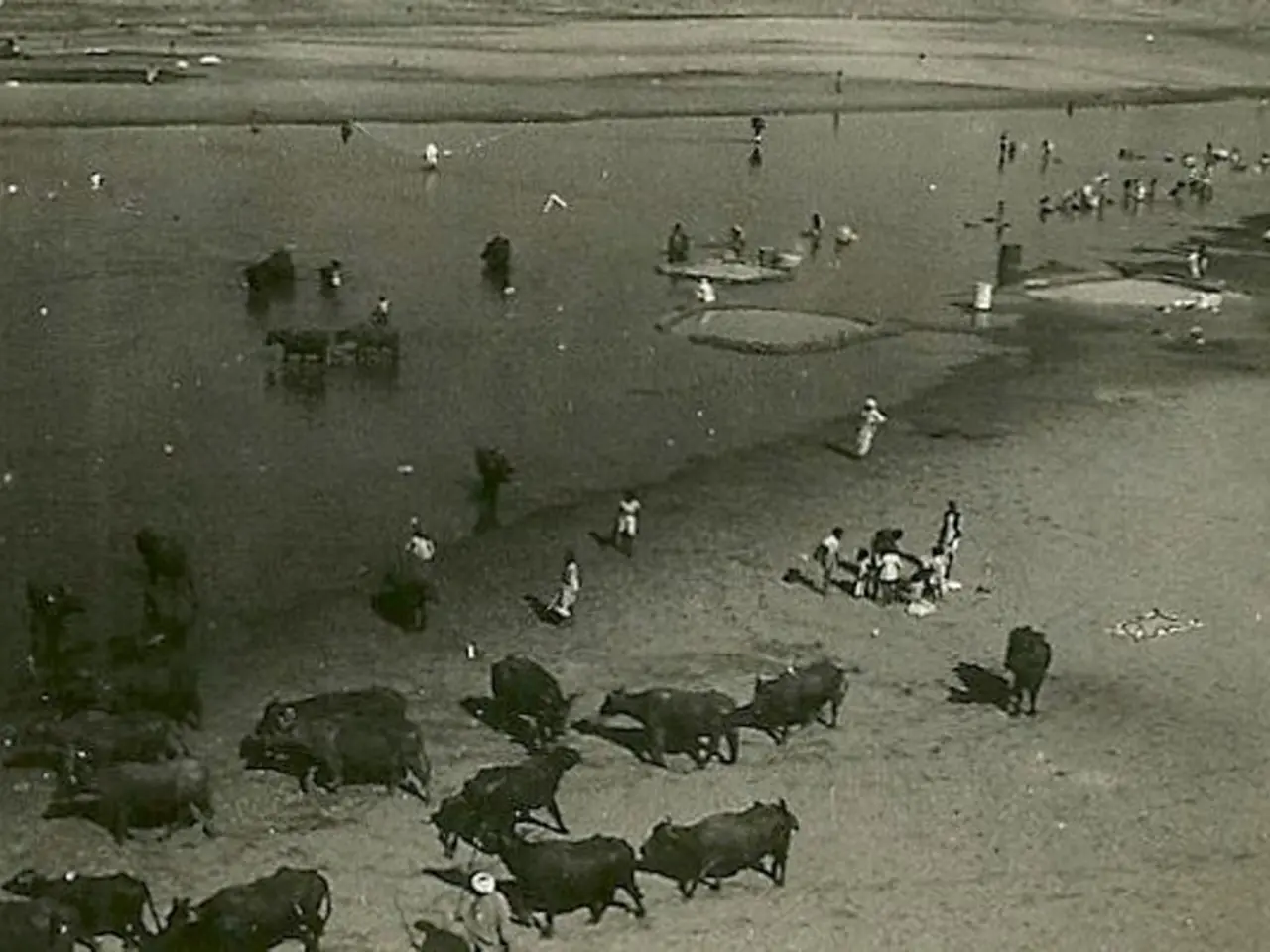Allies Butt Heads: Merz Counters Weidel's Charge of Deceit
In the heart of German politics, the Social Democratic Party (SPD) and the Christian Democratic Union (CDU) find themselves at odds over the fate of the Alternative for Germany (AfD) party. The SPD, a key coalition partner in the government, has taken a firm stance in favour of banning the AfD, while the CDU and its allies express reservations.
The SPD, led by Lars Klingbeil, has initiated motions and plans to establish a working group to collect evidence of the party's unconstitutional activities. They argue that the AfD's classification as a "confirmed right-wing extremist" group by the Federal Office for the Protection of the Constitution (BfV) underlines the necessity of this step.
However, the CDU, led by Chancellor Friedrich Merz, opposes the ban proposal. Merz and Federal Interior Minister Alexander Dobrindt have expressed doubts about the federal government initiating a ban. In the Bundestag, a resolution to ban the AfD previously failed, and another attempt is currently considered unlikely due to insufficient support, particularly from the CDU/CSU.
The 2025 classification of the AfD by the BfV as a "confirmed right-wing extremist endeavour" with racist and anti-Muslim characteristics has intensified the debate. This designation permits increased monitoring and possibly cutting the party's public funding, and it provides a legal basis for attempts at banning the party.
The issue remains highly contentious, with legal proceedings ongoing and political discussions continuing about whether and how to pursue a ban on the AfD in Germany. The overall stance of the Bundestag is divided, with no majority support currently for a ban resolution. The possibility of a ban could also come from a majority in the Bundesrat (the chamber comprising state governments), but gaining enough support there remains uncertain without backing from major conservative parties.
Meanwhile, the black-red government, led by Chancellor Merz, is facing criticism over its budget planning. Faction leader Heidi Reichinnek of the Greens has labelled the budget a "budget of hopelessness," criticising planned massive armament and tax gifts for the super-rich and corporations. The coalition, however, aims to instil a sense of courage and confidence in the German people, promising to make Germany a great place to work and live.
This week, the Bundestag held its first general debate since the election, during which Chancellor Merz appealed for courage and confidence. The debate was marked by heated arguments between the black-red government and the AfD, with accusations flying and calls for a party ban. The green faction leader, Katharina Dröge, accused the Chancellor of turning a blind eye in the mask affair, while AfD faction leader Alice Weidel accused the CDU chairman of breaking his word and called him the "lying chancellor."
The political landscape in Germany continues to evolve, with the debate over the AfD ban serving as a significant point of contention. As discussions continue, the future of the AfD and the direction of German politics remain uncertain.
- The SPD and CDU, key players in German politics, are at odds over the proposed ban on the AfD, with the SPD initiating a working group to gather evidence of its unconstitutional activities and the CDU expressing reservations.
- The 2025 classification of the AfD as a "confirmed right-wing extremist" group by the BfV has intensified the debate, allowing for increased monitoring and potential cuts in public funding, and providing a legal basis for attempts at banning the party.
- The ongoing debate over the AfD ban, marked by heated arguments and accusations, is a significant point of tension in the evolving political landscape of Germany, with the future of the AfD and the direction of German politics remaining uncertain.








